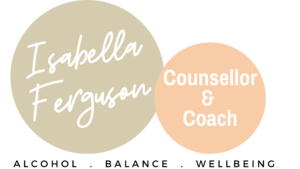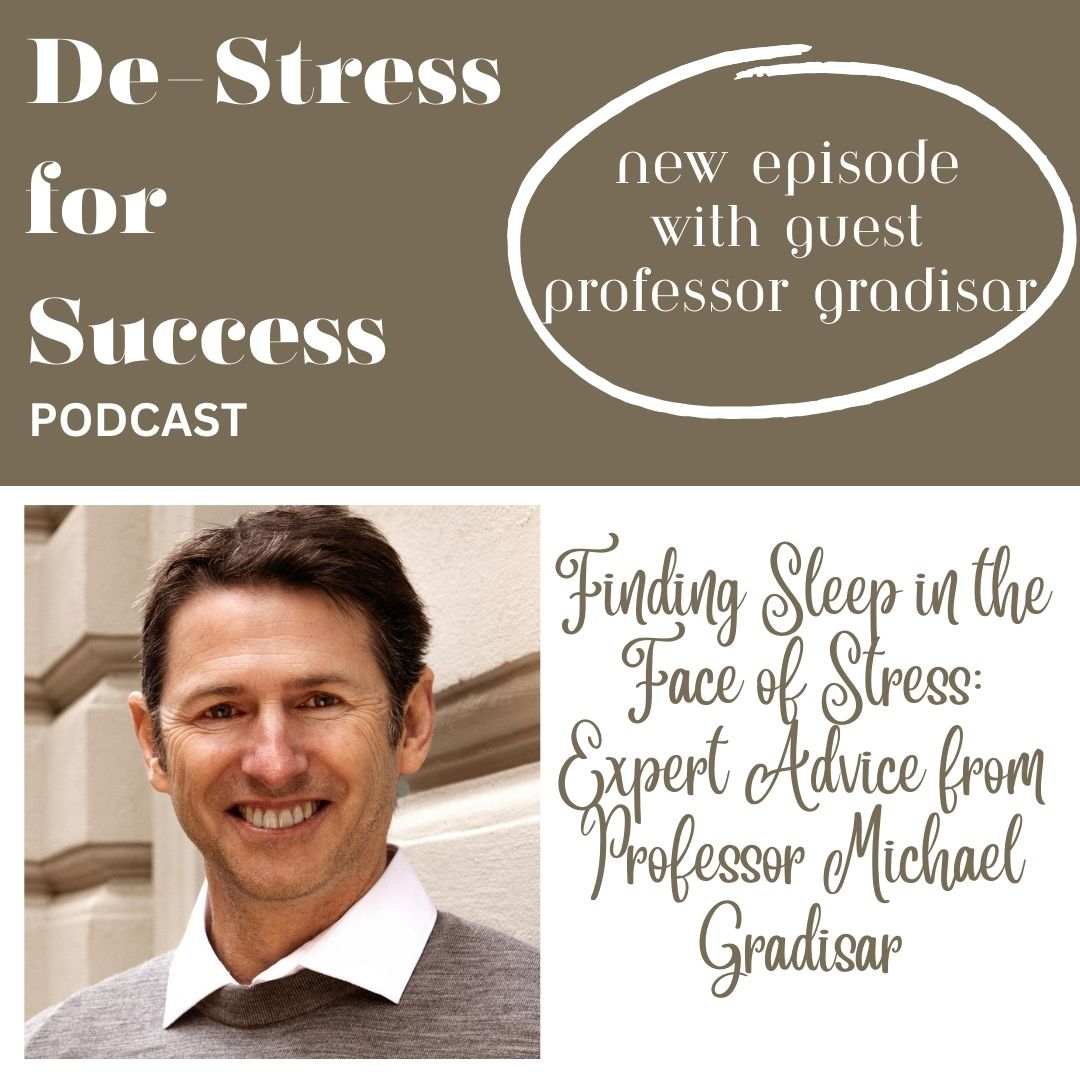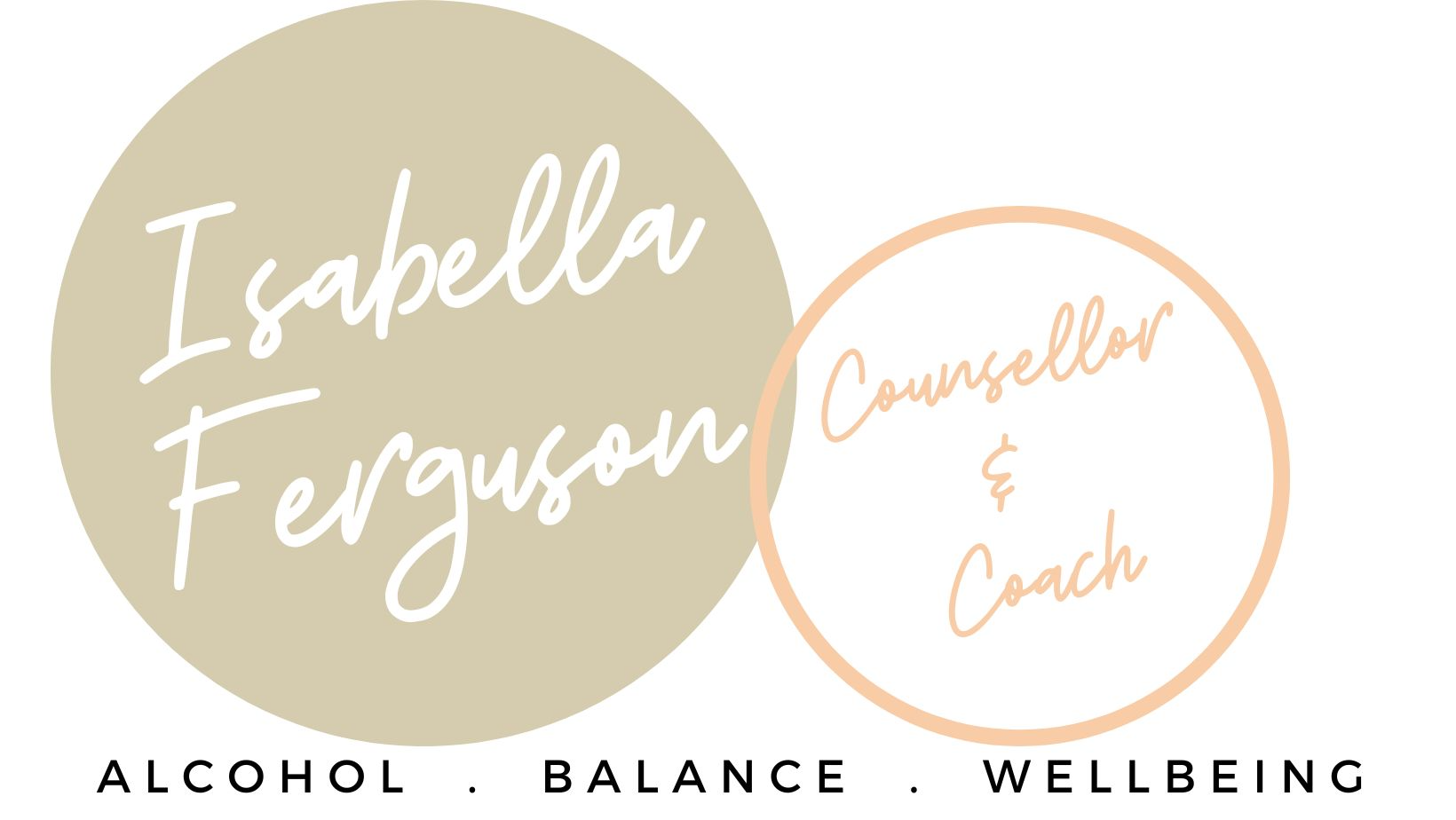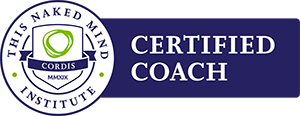Finding Sleep in the Face of Stress: Expert Advice from Professor Michael Gradisar
Our day-to-day lives seem to be increasingly plagued by stress and sleep deprivation. Endless lists, spinning many plates…. I don’t know about you, but switching off in the evening is often hard and can require a strategic approach.
In my recent De-Stress for Success podcast episode, Professor Michael Gradisar, an acclaimed sleep expert and clinical psychologist, discusses the intricate connection between stress and sleep, offering practical tips to improve sleep quality amidst stress.
Professor Gradisar explains that stress often triggers physiological and mental hyperarousal, inhibiting the relaxation necessary for sleep. In contrast, insufficient sleep impedes the body’s capacity to manage stress, creating a detrimental cycle. Recognising these interrelations is key to improving sleep patterns and managing stress effectively.
Interestingly, Professor Gradisar debunked some common misconceptions about pre-sleep rituals, such as the impact of late-night television or alcohol. Contrary to popular belief, watching TV has a near-zero correlation with sleep disruption, whereas alcohol, while initially promoting relaxation and sleep onset, suppresses REM sleep, crucial for developing resilience to stress.
Professor Gradisar further highlighted the importance of sleep education, underscoring the need for reliable resources. From renowned sleep apps like SleepCycle to Matthew Walker’s podcast, credible information about sleep is pivotal in managing sleep patterns and coping with stress.
Sleep deprivation has far-reaching implications, from reduced work performance due to presenteeism (attending work while sick) to life-threatening situations, particularly for individuals in high-risk occupations. Professor Gradisar suggested several coping mechanisms for sleepiness, including strategic caffeine intake and mindfulness body scan techniques, to improve sleep onset time.
One key takeaway from the discussion was the significant role of cognitive therapy in managing sleep and stress. Unhelpful thoughts, excessive worry, and negative reflections often disrupt sleep. Cognitive therapy, while requiring time and practice, offers an effective method to counter these unhelpful thought patterns, promoting better sleep.
Finally, Professor Gradisar provides practical tips to enhance sleep quality, including the beneficial effects of natural light exposure and maintaining a healthy diet. He also emphasised the significance of resilience in managing stress and creating an environment conducive to sleep.
In conclusion, managing stress and improving sleep quality require an informed, multifaceted approach. Whether it’s debunking common myths or providing practical sleep tips, insights from sleep experts like Professor Gradisar can significantly contribute to our understanding and management of stress and sleep, leading to healthier, more balanced lives.
PROFESSOR GRADISAR
To learn more about the Professor Gradisar’s services, goto: https://winksleep.online
SLEEP CYCLE APP, SLEEP PODCAST, AND MIND BODY SCAN (AS REFERRED TO IN THIS PODCAST)
Sleep Cycle app: www.sleepcycle.com
The Matt Walker Podcast: https://spotify.link/1TG2QQyK3Db
Body Scan for Sleep: https://youtu.be/Euy4YsK_Bgc?si=uxYL7pHD68qQJErw
ALCOHOL AND SLEEP
To learn more about alcohol and sleep, head to episode 8 of the Not Drinking Today Podcast.
ISABELLA FERGUSON
To learn more about my services or to book in a no obligation 30 minute chat, head to: https://isabellaferguson.com.au








